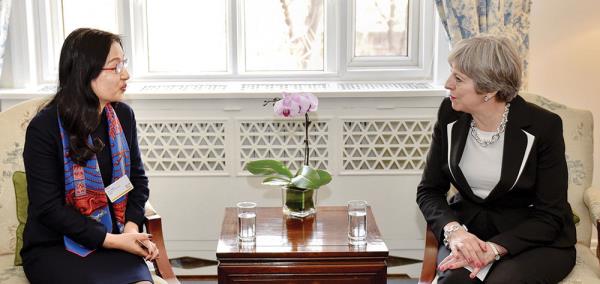07 March 2018

At a meeting with the prime minister in China, Huawei chairwoman Sun Yafang said her company will continue to help build a better connected UK.
Huawei Technologies will procure a total of £3bn in the UK over the next five years, helping British companies to increase exports to China.
At a meeting with prime minister Theresa May held in Beijing at the start of February, Huawei chairwoman Sun Yafang reaffirmed her company’s long-term commitment to the UK. She said: “Over the coming years we look forward to continuing to collaborate with our customers and partners to help keep the UK at the very forefront of the digital age.”
In 2012, Huawei pledged to invest and procure £1.3bn in the UK from 2013-17. The company said this target had been exceeded, and that it has invested and procured £2bn during that period.
Huawei currently employs more than 1,500 people in the UK in 15 offices, including its head office in Reading. The company has two joint innovation centres in the UK, one with BT in Ipswich and another in Newbury with Vodafone. It also has three R&D sites which include the Centre for Integrated Photonics in Ipswich, Neul in Cambridge, and a facility in Bristol.
Huawei adds that its ongoing cooperation with UK universities has seen the company work with more than 20 different universities on more than 100 individual research projects over the last five years. The firm says its plans to expand its university partnerships and the range of research topics.
“Huawei’s £3bn announcement is yet another significant vote of confidence in our world-leading tech industry,” claims international trade secretary Liam Fox. “With 90 per cent of global growth forecast to come from outside the EU, my international economic department is working to ensure Britain continues to benefit from the vast opportunities available as we leave the EU.”










